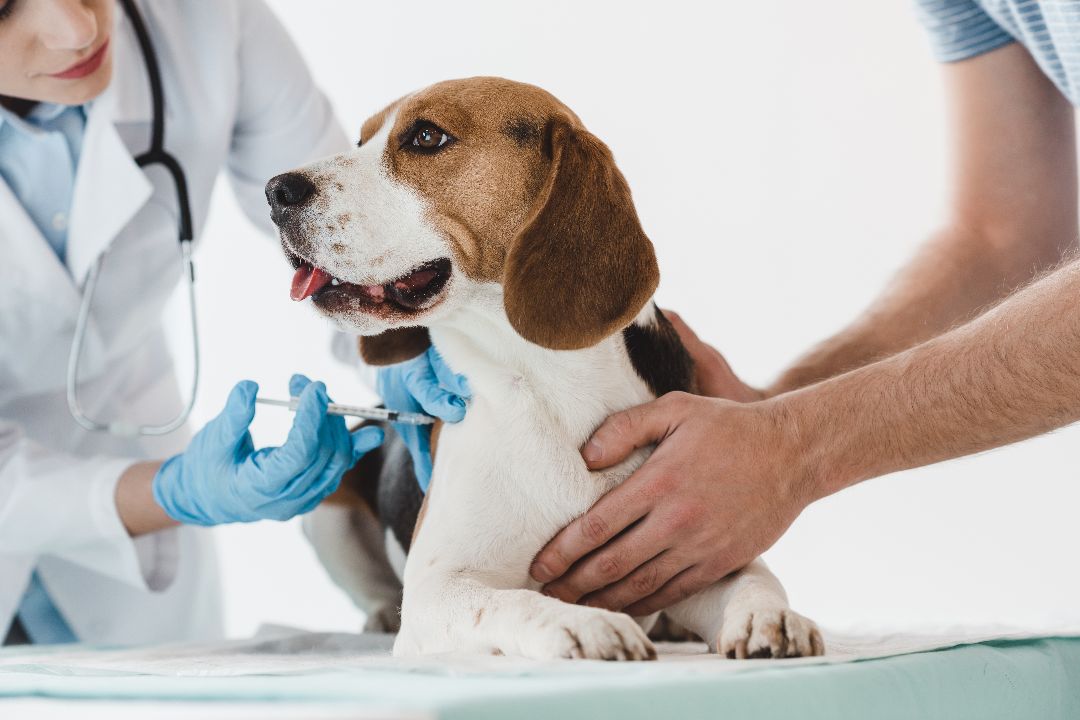One of the most hotly debated topics today is human vaccination, but many people don’t realize that some controversy exists over pet vaccinations as well. For more than 30 years, it has been common practice for veterinarians to vaccinate puppies and kittens during their first four months of life and give them booster shots every year afterward.
However, a few inquisitive vets began to question this practice when it began in the 1970s.

Dr. Schultz developed a vaccination schedule according to his research that calls for cats and dogs to be vaccinated every three to seven years, and although he published his research in 1978, it was not recognized until 20 years later when the American Association of Feline Practitioners issued similar guidelines.
Core Vaccines
In the 1970s, only a limited number of vaccines were available. Today, there are many more, but dogs require only four core vaccines. These vaccines cover serious, life-threatening diseases and are for the protection of both the animals and the people around them. Following are the four core canine vaccinations and the lengths of time they remain effective without boosters:
• Distemper – seven years
• Parvovirus – seven years
• Adenovirus – seven years
• Rabies – three years
Dr. Schultz reasserted his discoveries in 1995 when he published Are We Vaccinating Too Much? and again in 1999 with the publication of Duration of Immunity to Canine Vaccines: What We Know and What We Don’t Know.
In these works, Dr. Schultz noted, “Vaccines for diseases like distemper and canine parvovirus, once administered to adult animals, provide lifetime immunity.” However, many veterinarians continue to vaccinate the pets in their care on an annual basis.
Pet owners who know about these studies are beginning to question their vets. They want to know why their pets are being vaccinated every year when every three to seven years is sufficient, especially when the initial studies proving this were published more than 30 years ago.
Ian Tizard, professor of immunology at Texas A&M University, believes Dr. Schultz’s findings and recommendations are accurate.
“With modified live virus vaccines like canine parvovirus, canine distemper, feline panleukopenia, calicivirus and rhinotracheitis, the virus in the vaccine must replicate to stimulate the immune system. In a patient that has been previously immunized, antibodies from the previous vaccine will block the replication of the new vaccinal virus. Antibody titers are not significantly boosted. Memory cell populations are not expanded. The immune status of the patient is not enhanced,” states Tizard in the 1998 study Use of Serologic Testing to Assess Immune Status of Companion Animals.
“After the second rabies vaccination, re-administration of rabies vaccine does not enhance the immune status of the patient at one or two-year intervals. We do not know the interval at which re-administration of vaccines will enhance the immunity of a significant percentage of the pet population, but it is certainly not at one or two-year intervals,” Tizard continues.
According to Dr. Schultz, “The patient receives no benefit and may be placed at serious risk when an unnecessary vaccine is given. Few or no scientific studies have demonstrated a need for cats or dogs to be revaccinated. Annual vaccination for diseases caused by CDV, CPV2, FPLP and FeLV has not been shown to provide a level of immunity any different from the immunity in an animal vaccinated and immunized at an early age and challenged years later. We have found that annual revaccination with the vaccines that provide long-term immunity provides no demonstrable benefit.”
Why Do Veterinarians Over-Vaccinate?
Dr. Schultz is not shy about stating the true reason for vaccinating pets too frequently. “Profits are what vaccine critics believe is at the root of the profession’s resistance to update its protocols. Without the lure of vaccines, clients might be less inclined to make yearly veterinary visits,” states Schultz. “Vaccines add up to 14 percent of the average practice’s income, AAHA reports, and veterinarians stand to lose big. I suspect some are ignoring my work.”
“Tying vaccinations into the annual visit became prominent in the 1980s and a way of practicing in the 1990s. Now, veterinarians don’t want to give it up.”





